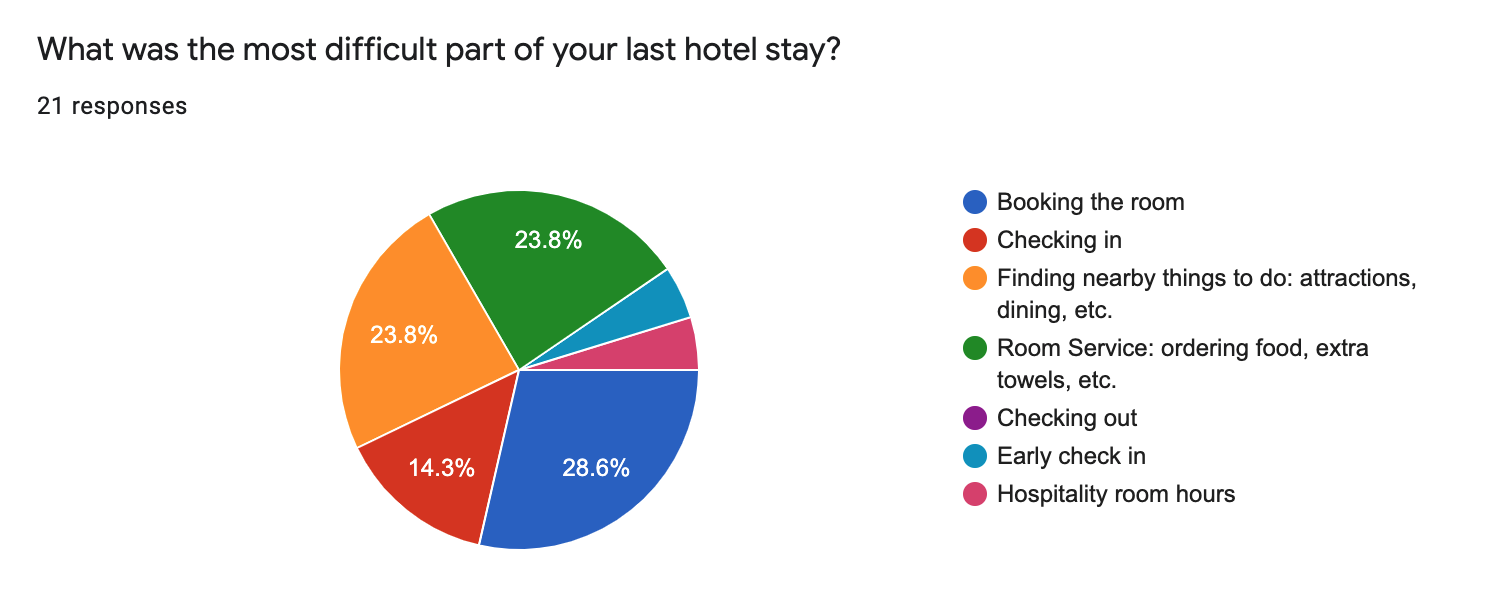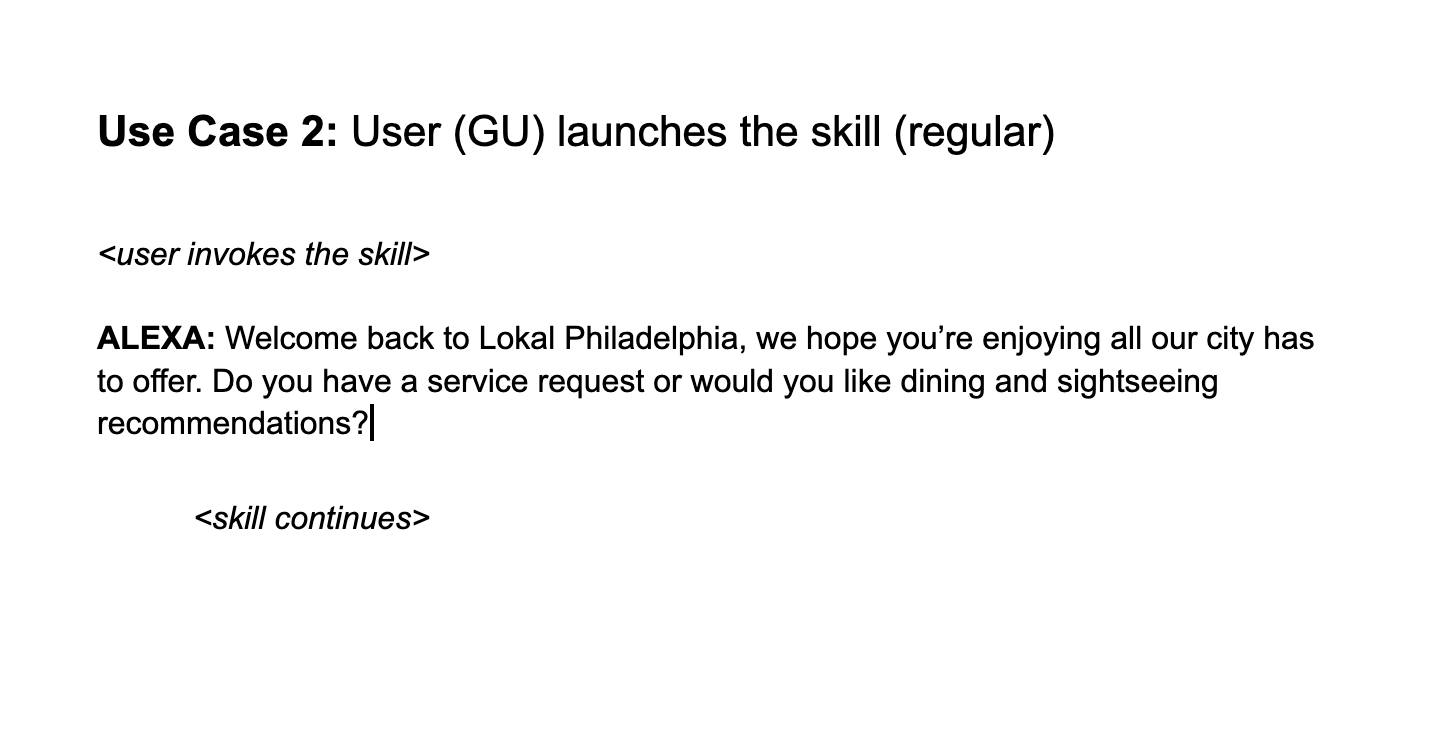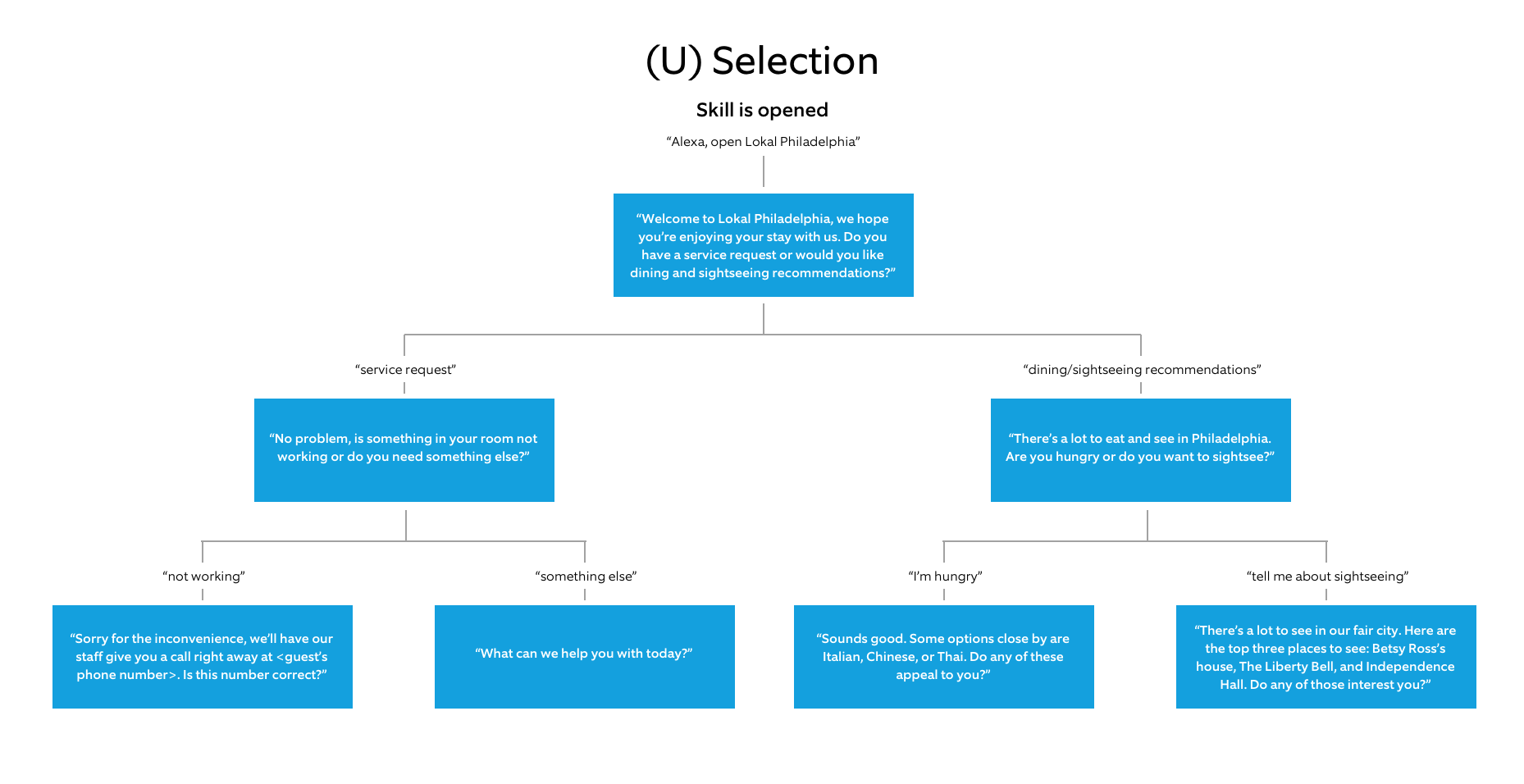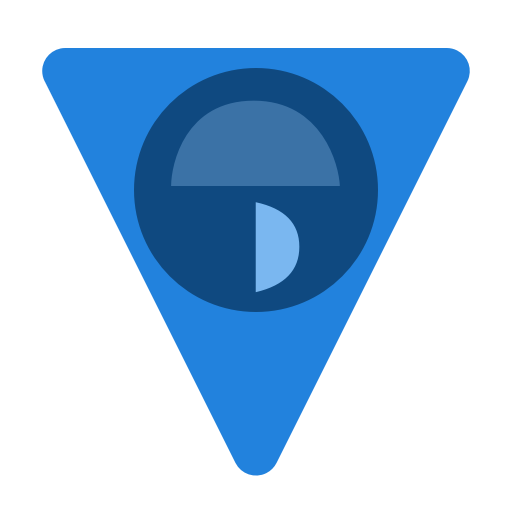Helping hotel guests through voice
Project: Lokal Philadelphia voice skill concept
My role: UX Research, Conversation Design
Who I worked with: A developer
Background:
As part of my growing interest in conversation design, I signed up for a voice skill hackathon, organized by a local Philadelphia Meetup group. The event took place over a weekend and the idea was to pair up designers and developers to create a working prototype for an Alexa skill. The top 3 skills would be chosen and awarded prizes.
The organizers provided several skill prompts to choose from, one of which was an assistant for an invisible service hotel. This is the prompt my team chose.

A hotel room at the Lokal Philadelphia Old City
The problem:
An invisible service hotel provides many of the amenities of a modern luxury hotel, but without a front desk or onsite staff. How could a voice assistant provide concierge-level services that are traditionally handled by a hotel staff? This was the challenge.

Detail of survey results
Friday night: Research and discovery
After Googling invisible service hotels, I discovered that one already existed nearby, the Lokal Philadelphia in Old City. They did not offer a concierge voice skill. When I brought this up to the developer on my team, we decided to imagine Lokal Philadelphia was the client we were building this skill for.
To start, I wanted to find out what was most important for guests staying in a hotel. I created a survey using Google Forms and posted it on my Facebook timeline. Quite a few of my friends and family like to travel. By using screener questions, I sought to narrow down respondents to just those who used a hotel in the last 6 months. I wanted participants whose experience was still fresh in their minds.
Saturday: Results and direction
There were 21 qualified respondents for this research and among other great insights, we uncovered the following:
When asked what the most difficult part of their last hotel stay was, nearly half the respondents said the quality of room service and finding local dining/attractions were problematic for them.
After discussing these results, the developer and I decided to make these two items the focus of our skill: room service and dining/sightseeing recommendations for the Lokal Philadelphia.
I began drafting some of the use cases in which our Alexa skill would help hotel guests in these ways and included some sample dialogs as well. I discussed these with the developer and refined them based on his feedback.
However, late Saturday afternoon, the developer had to leave and handle a work situation that required his attention. He wasn't sure if he'd be back on Sunday either. I decided to continue working on the skill regardless.

Detail of a use case for this skill
Sunday: Flows
My developer partner didn't return on Sunday, but I attended anyway and spent the final day of the hackathon revising use cases and putting together flows. Had there been more time, I would've put together a quick prototype and performed some Wizard of Oz testing to refine the skill even more. That evening, other teams presented their work, and the event organizers announced a team with the winning voice skill.
Learnings and conclusion:
My biggest takeaway from this experience was learning that conversation design was very similar to UX design in many respects. My writing skills also came in handy when writing sample dialogs. Like traditional user-centered design, considering multiple use cases and repair flows seemed crucial to creating a consistent and useful voice experience. Even though my team didn't complete a skill, my interest in voice-forward projects was sparked.

The beginnings of a flow for the concierge skill
